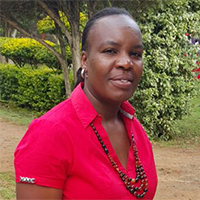Behavioral Science Department
Introduction
 Dr. Ann Mwangi, BSc, Msc, PhD
Dr. Ann Mwangi, BSc, Msc, PhD
Senior Lecturer and Head of Department Behavioral Science
The department of behavioral sciences was established in 1998 as one of the departments under the faculty of health sciences which later became the school of medicine. Due to the necessity of health psychologists in the Moi teaching and referral hospital and across the country, in collaboration with Moi University Kenya and Maastricht University Netherlands, it started a Bachelors of Science Programme in Medical Psychology the first of a kind in Kenya and across Africa. The programme focuses on Medical Psychology, which is based on the biopsychosocial model that draws upon knowledge from health psychology, clinical psychology and neuropsychology. It is very useful in understanding, preventing, and relieving psychologically based distress and dysfunction in human being. The department also offer master’s in International Health Research Ethics and a Master’s of science in Clinical Psychology which will commence in the fall of 2019.The department is also the key custodian to the Human Communication Skill and Behavioural Science and Ethics Courses which are offered across all schools in the College of Health Sciences, Moi university. Since the establishment, the department has steadily grown expanding its connections not only to local universities but universities within Africa and across the world. The department is involved in clinical research collaboration with Duke university USA, skills training and academics in collaboration with Maastricht university Netherlands, regional expansion of international Health research ethics training in collaboration with Mbarara university Uganda to mention but a few. In doing this, it aims to create the exposure and awareness needed to motivate health researchers and psychologists; in addition it also aims to sensitize the general population on the necessity of mental health through campaigns and forums that it organizes on regular basis. Departmental members are also involved in collaborative research with global partners in the AMPATH Consortium.
